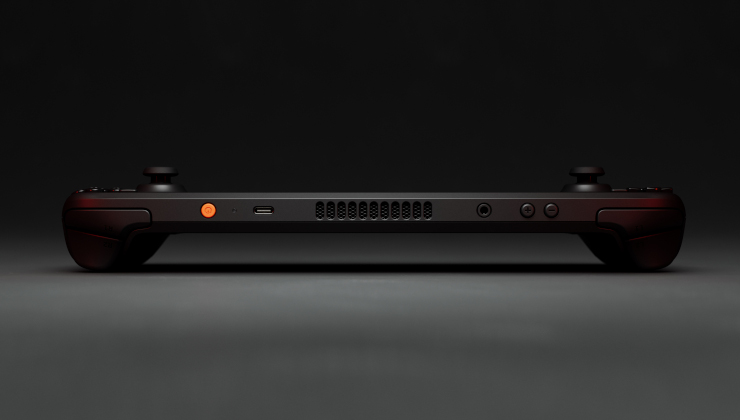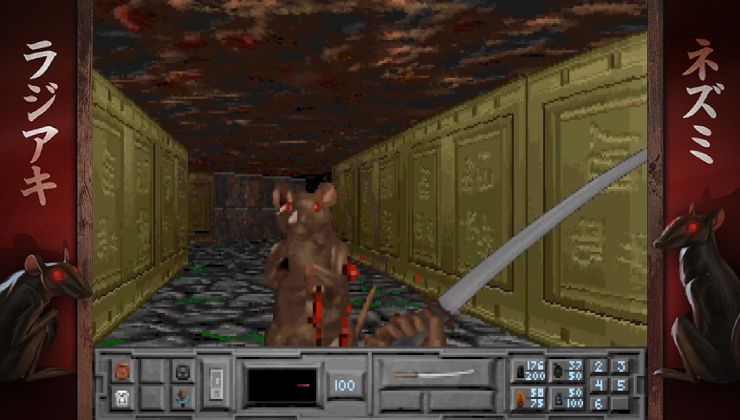There comes a time when everyone has to sit and think about what they use on their PC, especially if you're on Linux. For me, Arch Linux (via EndeavourOS) just wasn't working out any more and so I've moved to Fedora.
While I was reasonably happy with Arch Linux, it's just not stable enough for me personally. It's a very subjective thing of course, and highly dependent on what hardware you use — along with how often you update. For me, it just messed things up a bit too often, and last night was the final straw.
I updated either that day, or the day before, and just before a livestream was due to start, my SteelSeries headset no longer worked. No matter what I tried, following guide after guide about PipeWire, nothing helped. Just this weird and very quiet electrical static noise whenever I tried piping audio to it. Eventually it worked again by some downgrading, plus random hotplugging and testing it on a Windows machine for a sanity check and it started somewhat working again. My Microphone was another issue, at the same time it decided to be ridiculously quiet for no apparent reason I could see so there were wider problems. I had enough, I had work to do and after hours of hair-pulling — hello from Fedora.
Thankfully, with the likes of Flathub / Flatpak packages and how far along apps like Discover have come along for installing packages and setting things up, there's not a whole lot to learn. It's been a very long time since I used Fedora, and it was one of my first Linux distributions I tried sticking with back when it was "Fedora Core" and wow — it's always surprising to see how far we've come as a platform for doing anything.
Fedora does come with some of its own issues, like NVIDIA drivers being a nuisance to install, which they definitely should improve. If other distributions can do one-click or one-line installs, I'm sure they could do it too. However, it's just another point towards me swapping to AMD when prices settle, or perhaps Intel when Arc properly launches for desktop. I also need to figure out why Dropbox won't load on startup, some little things like that.
Anyway, are you really a Linux nerd if you don't distro-hop at least once a year? Jokes aside, I look forward to seeing why people keep recommending Fedora nowadays as a stable distribution, let's see how long it takes me to break it.
Next year I'm on Debian for a quarter of a century.
Need to find out the exact date. :D
Imagine upgrading a Win95 install all the way to Win10!
Oh come on liam join gentoo we have cookies
Next year I'm on Debian for a quarter of a century.
Need to find out the exact date. :D
Imagine upgrading a Win95 install all the way to Win10!
Actual upgrading unfortunately (or? dunno) lasted "only" about 15 years though.
Talked about it in the forum lately:
https://www.gamingonlinux.com/forum/topic/5150/
Using it since January, and nvidia akmod broke once due to kernel changes required a new nvidia driver and fedora didn't give a damn and rpmfusion was a day late or so.
But you could still boot the old kernel and it worked.
I had issues with discover actually not treating system updates properly and rebooting several times since it just didn't install all packages downloaded. That's far better in Gnome, no idea if that's fixed by now since I still try to give Gnome a fair chance :-).
For Nvidia and the rpmfusion: in Gnome there was a start screen where you enabled them with a click and just had to install akmod-nvidia and kernel-devel, which for some reason did not get installed by akmod but it requires it.
Otherwise I'm pretty satisfied with Fedora. I'd prefer official nvidia support too, but it is how it is.
Last edited by STiAT on 8 Apr 2022 at 1:08 pm UTC
Liam: i leave systemD for systemDLiam has in the past nuked his system by compiling OBS and you suggest he use Gentoo? Pretty bold, if you ask me. :P
Oh come on liam join gentoo we have cookies
Liam: i leave systemD for systemDLiam has in the past nuked his system by compiling OBS and you suggest he use Gentoo? Pretty bold, if you ask me. :P
Oh come on liam join gentoo we have cookies
I have to hear that story
Somewhere I followed a wrong command, didn't pay enough attention, stuff got removed that shouldn't and it all died. It was a learning experience to be sure and I've rarely compiled anything since :P. Flathub all the way.Liam: i leave systemD for systemDLiam has in the past nuked his system by compiling OBS and you suggest he use Gentoo? Pretty bold, if you ask me. :P
Oh come on liam join gentoo we have cookies
I have to hear that story
my SteelSeries headset no longer worked. No matter what I tried, following guide after guide about PipeWire, nothing helped.Huh, I thought I was the only one to face this issue, since every guides and wiki that I found only sing praises about PipeWire. In my case, my headset and speaker works properly after boot, then randomly stop working later. Sometimes it stop working several minutes after boot, sometimes several days after.
I'm planning to move to new distro, but I'm really, really lazy right now
I run sudo pacman -Syu and flatpak update twice a day and have had no stability problems. Can't complain at all. The impression I got before switching to an Arch-based system was that Arch was volatile as hell, but any hassles I've had since switching to EOS have had nothing to do with Arch itself.
This is due to Arch only keeping the currently installed kernel in the filesystem. So, if you boot kernel version A and then upgrade to kernel version B, only the latter is in the filesystem. This isn't a problem per-se, but kernel drivers for peripherals are usually only loaded when plugged in. Thus, if you plug in your headset now, the driver in the filesystem is for version B and not A, and cannot be loaded.
Ubuntu/Debian and Fedora (and others) solve this by keeping the currently booted kernel installed on updates.
The solution is to simply upgrade (the kernel) only after working or reboot immediately.
And yes, migration to AMD two years ago have helped with driver install issues a lot!
Enjoy the hopping!
As I need to be productive (day-by-day, both office and home, both desktop and server) I just have to say: God bless for LTS distros!(Now running desktops on ZorinOS, and it is a blast!)
And yes, migration to AMD two years ago have helped with driver install issues a lot!
Enjoy the hopping!
I still wish I have had an option when the GPU prices were just too high and my rig burned down. The only AMD cards I could get I couldn't get equipment to cool them passively, and the most vendors which got the cards on "normal" prices had no proper option for passively cooled AMD cards.
This rig will last a few years with it's 3070Ti. But I'll very likely opt for a AMD card if there is any possibility next time.
Though, it's not as bad as it sounds with NVidia, the lack of support for official open source drivers is buggering me.
Anyway, are you really a Linux nerd if you don't distro-hop at least once a year?Does
rpm-ostree rebase count as distro-hopping?
(I've been a total convert to the RHEL 'ecosystem' for a while now; my router & VPS are on AlmaLinux, & I'm perfectly happy with all of them.)
My prediction: see you in EndeavourOS (weren't you using and praising that?) in... 3 weeks?
Last edited by sudoer on 8 Apr 2022 at 1:24 pm UTC
Instead of being mad at Linux about my new fancy bluetooth headset not working, I now just the boring 3.5mm jack. When it comes to graphics cards, I just gave nvidia the middle finger and been happy ever since: No more messing around with their propietary drivers or worry about how easily distros will let me install their crap.
That said, I've also had my share of breakage after an arch update, and after years using it I'm still hesitant to recommend it to my peers for that reason, so I totally see the point.
Fedora does come with some of its own issues, like NVIDIA drivers being a nuisance to install, which they definitely should improve. If other distributions can do one-click or one-line installs, I'm sure they could do it too.I like to install the NVIDIA driver using [this](https://github.com/t0xic0der/nvidia-auto-installer-for-fedora-linux) it is still not an official support from fedora but it is the fastest way on fedora also note that the devs says that it's Only tested on 9XX/10XX/20XX/30XX series discrete NVIDIA cards.















 How to set, change and reset your SteamOS / Steam Deck desktop sudo password
How to set, change and reset your SteamOS / Steam Deck desktop sudo password How to set up Decky Loader on Steam Deck / SteamOS for easy plugins
How to set up Decky Loader on Steam Deck / SteamOS for easy plugins
See more from me